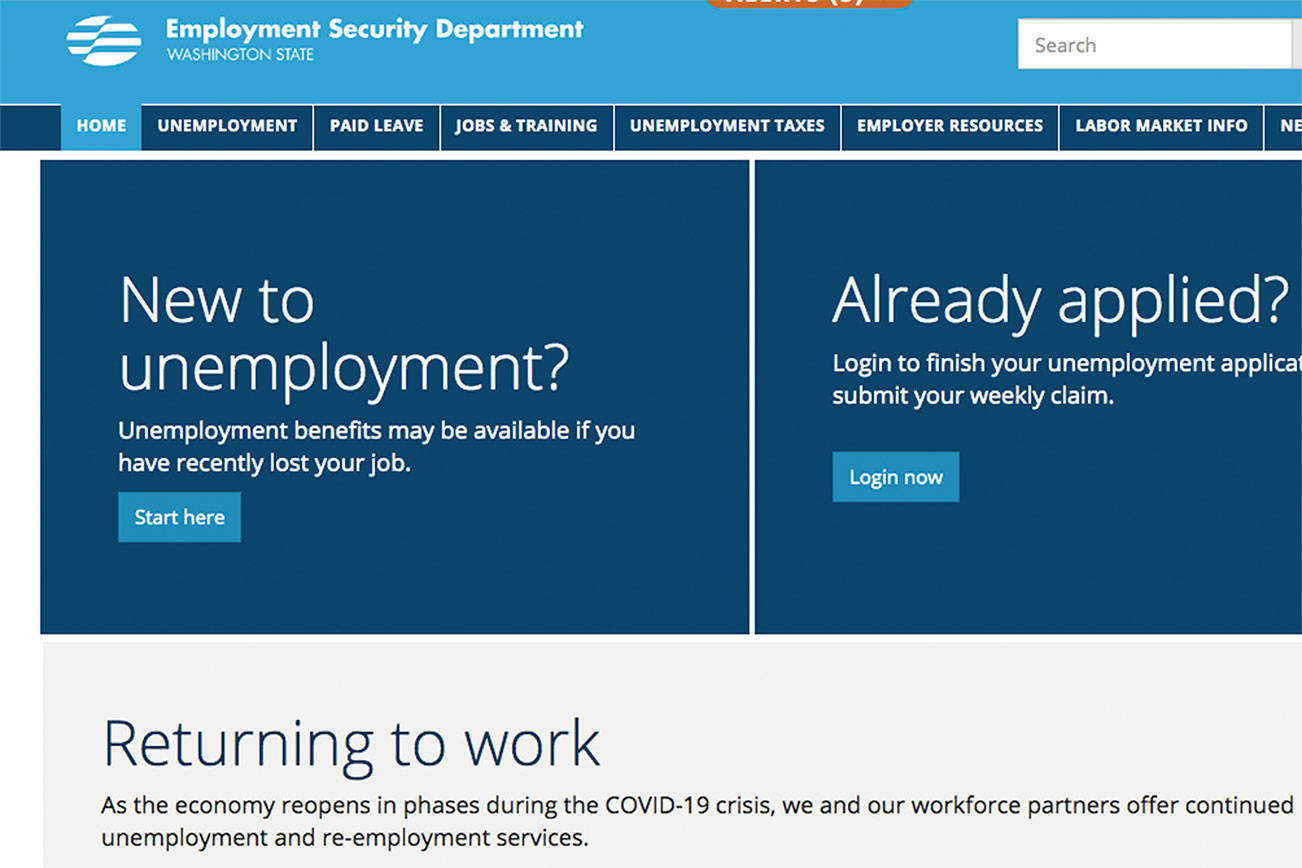Payments ranging from the $300 to $1,800 landed in hundreds of thousands of bank accounts during the last week of September, as part of a temporary federal program to boost unemployment benefits.
In total, the Lost Wages Assistance program pumped $625 million to Washingtonians who are unemployed, or working reduced hours, during the month of August because of COVID-19.
It has been more than six months since the pandemic caused unemployment to reach levels far surpassing the Great Recession.
Between March and September, the Employment Security Department paid out more than $11.3 billion to a million out-of-work Washingtonians — a third of the state’s workforce.
“We blew away every record imaginable,” agency spokesperson Nick Demerice said.
But some claims were left pending for months, and some of those are still under review.
As of press time, 21,000 people are waiting for the state agency to resolve an issue with their claim. A week ago, it was 31,000.
“For the people who are still waiting, while it’s a relatively small percent of the overall pool of claimants, for them it’s a really difficult situation, and we’re doing everything we can to resolve those claims as quickly as possible,” Demerice said.
Demerice and Employment Security Department Commissioner Suzi LeVine have both long said that with new claims filed each week, there will always be people waiting for resolution.
The goal is to reduce the average wait time to three weeks. Over the summer, it was as low as four. Recently, though, it has risen to 7.8 weeks.
Statewide, 8.4% of workers were unemployed during the month of August.
The number of new claims each week has leveled off in recent months. On average, about 20,000 people are filing their initial unemployment claim each week.
In August and September, the agency shifted staff duties to clear a backlog of appeals from people who were denied benefits.
Since then, 13,000 appeals have been resolved and about 2,000 remain.
“Because of that focus, that meant some of our other queues slowed down a bit,” Demerice said. “But now we can bring those resources back.”
Earlier this week, the state agency announced it will not implement a solvency tax on businesses. Under state law, the agency must issue a 0.2% tax on businesses statewide if the unemployment trust fund dips below a certain threshold.
In avoiding the extra tax, Washington businesses will save an estimated $200 million, according to the agency.
“Having one of the nation’s strongest unemployment trust funds is helping us weather this crisis better than many states,” Commissioner Levine said in a news release. “Coupled with a stronger than expected state revenue forecast last week, this means an improved outlook overall and a break for employers when they most need it.”
The fund’s strength also allows the state to avoid taking out federal loans to pay unemployment benefits.


